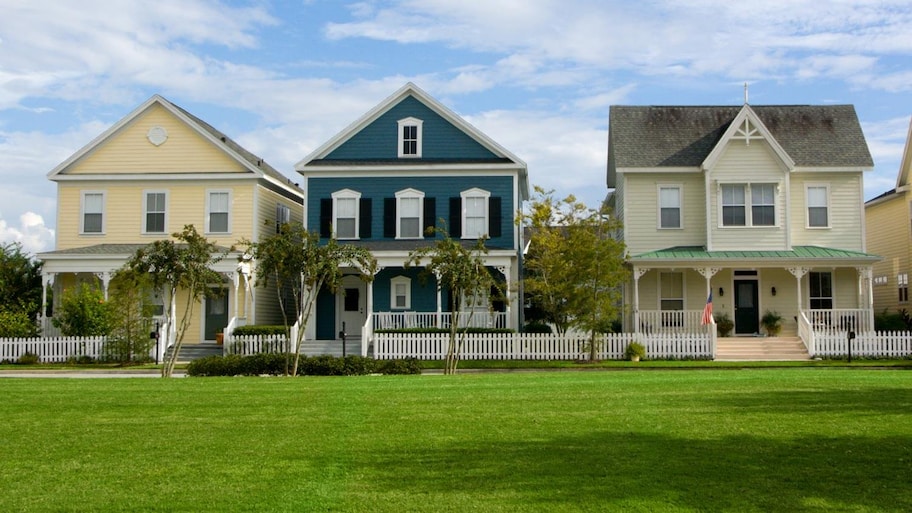Highlights
Asking for a written copy of the most recent homeowners association rules will put you ahead of the game.
Homeowners association fees can vary greatly, depending on your location.
Most outdoor changes to your property need to be run by the HOA.
A homeowners association (HOA) sets rules and regulations for a residential community, including some restrictions on what you can do with your property. Whether you love or love to hate your HOA, it’ll be easier for you to follow the rules if you’re aware of them before moving in.
Before you buy a home in a community with an HOA, it’s a good idea to ask questions, so you know exactly what they do and do not regulate. Here are some essential questions you should ask your HOA.
What Are the Rules?
This one is fairly straightforward—simply ask what the rules are. A homeowners association should be able to provide you with a written copy of their most up-to-date regulations. If you’re looking at a home with an HOA, you can ask your agent to request the documents for you or contact the HOA directly.
How Much Are the Fees?
Homeowners associations charge fees to the residents of their neighborhood for things like landscaping, building upkeep, and other services. The fees vary by geographic location, type of properties—such as townhouses vs. duplexes—and the HOA’s responsibilities. A general rule of thumb is the more amenities and services, the more expensive the HOA fees.
When Are the Fees Due?
Did you know that if you fail to pay your homeowners association fees, they can put a lien on your home? It’s true. Asking when your fees are due will allow you to build them into your budget so you don’t end up in a sticky situation with your neighbors.
What Do the Fees Cover?
If you’re paying several hundred dollars a month to a homeowners association, you should know exactly where that money is going. Do they take care of the landscaping on the property? If it’s a condo building, do the dues cover the cost of painting hallways, keeping the carpet nice, and decor for common spaces? Understanding how the fees are being spent may help justify the cost.
What is the Annual Budget?
Some HOAs are responsible for long-term maintenance, replacement, and repairs in the neighborhood community. This responsibility applies in particular to condominiums, where there are shared structural elements like roofs, elevators, windows, and so on.
You should find out how the HOA is allocating the money so, should any of those things need to be taken care of, they have the money to do it in any given year.
Is There a Reserve Fund?
Let’s say, for example, you live in a condo and the roof needs replacing. If the HOA doesn’t have the money in the budget for that year, they’ll dip into their reserve fund, which is like a savings account for emergencies. If an HOA doesn’t have a reserve fund, guess who ends up paying for repairs? That’s right, the residents. In some instances, the HOA will assess extra dues or increase fees to cover the cost.
How Much Do the Fines Cost?
If you violate the rules, whether consciously or because you were not aware of a rule, how much will the HOA charge you? Get a breakdown of the amount they charge per violation and whether or not the fees differ for different types of infractions.
What Are the Pet Rules?

This is an important question if you plan to have a pet or plan to have visitors with pets. If the community is made up of townhomes or you live in a condo building, there’s likely a weight restriction for dogs. Some HOAs also have breed restrictions, so be aware of the specific rules before bringing home a furry friend.
Are Holiday Decorations Allowed?
HOAs govern what the neighborhood looks like, so there may be specific rules around what you can and cannot put up during the holiday season. They may also specify when you are allowed to put up decorations as well as a date by which you must take them down.
What Are the Rules Regarding Home Improvements?
Your homeowners association may have exterior painting guidelines, rules about whether or not you can build a home addition (if your home is freestanding), and even the color of your roof to prevent your roof from standing out. If you’re planning to make improvements to your new home, check with the HOA guidelines first to avoid a hefty fine.
Are Rentals Allowed?
If you’re planning to buy a property with a homeowners association and rent it out, you may want to think twice. Some homeowners associations require you to get approval from the board before you lease out the property. And many homeowners associations have banned short-term rentals altogether.
How Does Voting Work?
Before moving into a neighborhood with a homeowners association, you’ll want to determine whether your vote will count when it comes to making decisions about the neighborhood. Some associations conduct majority voting, while others do proxy voting. Proxy voting is when a small number of people from the community vote on behalf of everyone, similar to how government officials vote on behalf of their state.





